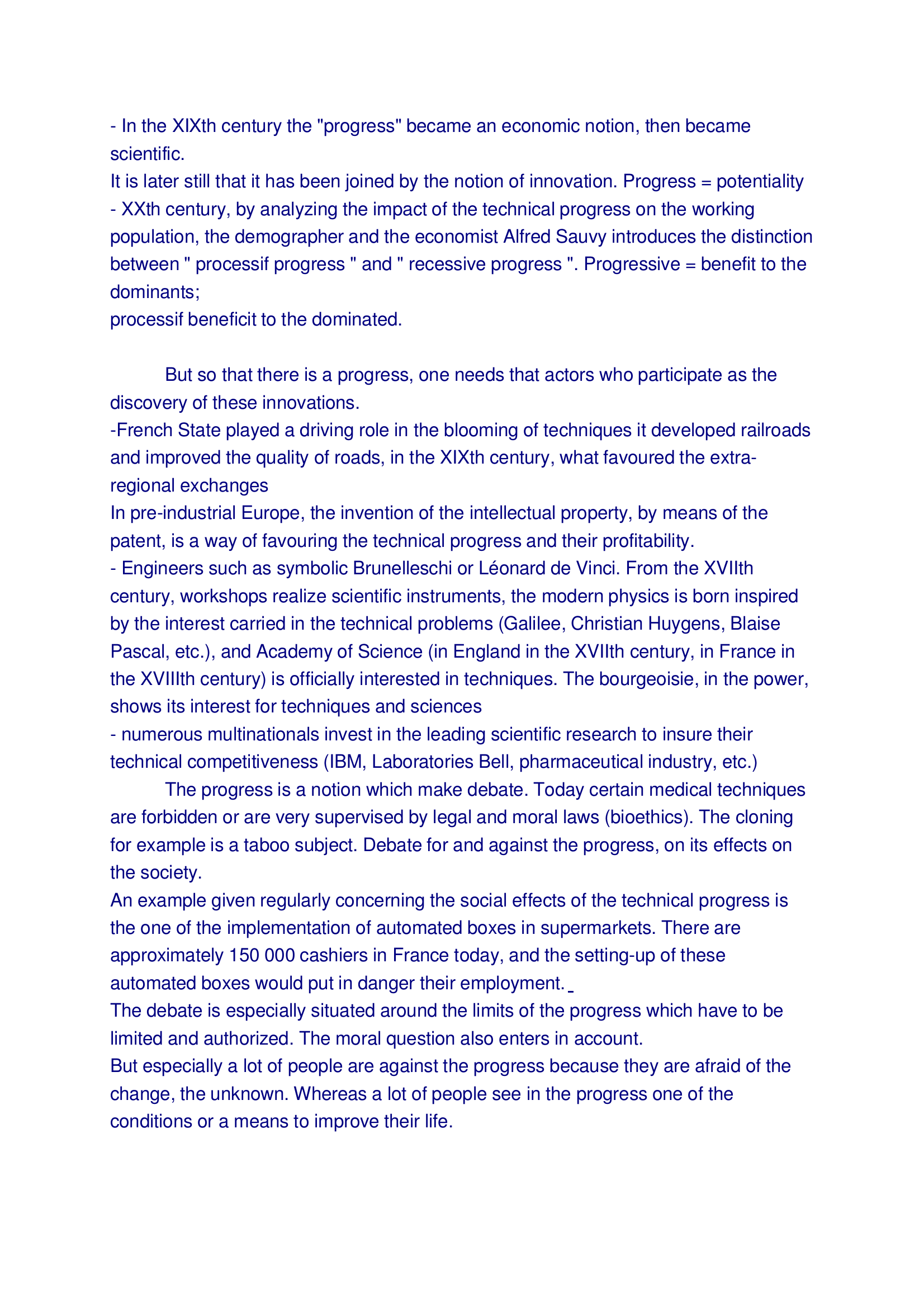what is progress
Publié le 05/01/2013

Extrait du document
«
In the XIXth century the "progress" became an economic notion, then became
scientific.
It is late r still that it has been joined by the notion of innovation. Progress = potentiality
XXth century, by analyzing the impact of the technical progress on the working
population, the demographer and the economist Alfred Sauvy introduces the distinction
between " processif progress " and " recessive progress ". Progressive = benefit to the
dominants;
processif beneficit to the dominated.
But so that there is a progress, one needs that actors who participate as the
discovery of these innovations.
French State played a driving role in the blooming of techniques it developed railroads
and improved the quality of roads, in the XIXth century, what favoured the extra
regional exchanges
In preindustrial Europe, the invention of the intellectual property, by means of the
patent, is a way of favouring the technical progress and their profitability.
E ngineers such as symbolic Brunelleschi or Léonard de Vinci. From the XVIIth
century, workshops realize scientific instruments, the modern physics is born inspired
by the interest carried in the technical problems (Galilee, Christian Huygens, Blaise
Pascal, etc.), and Academy of Science (in England in the XVIIth century, in France in
the XVIIIth century) is officially interested in techniques. The bourgeoisie, in the power,
shows its interest for techniques and sciences
numerous multinationals invest in the leading scientific research to insure their
technical competitiveness (IBM, Laboratories Bell, pharmaceutical industry, etc.)
The progress is a notion which make debate. Today certain medical techniques
are forbidden or are very supervised by legal and moral laws (bioethics). The cloning
for example is a taboo subject. Debate for and against the progress, on its effects on
the society.
An example given regularly concerning the social effects of the technical progress is
the one of the implementation of automated boxes in supermarkets. There are
approximately 150 000 cashiers in France today, and the settingup of these
automated boxes would put in danger their employment.
The debate is especially situated around the limits of the progress which have to be
limited and authorized. The moral question also enters in account.
But especially a lot of people are against the progress because they are afraid of the
change, the unknown. Whereas a lot of people see in the progress one of the
conditions or a means to improve their life..
»
↓↓↓ APERÇU DU DOCUMENT ↓↓↓
Liens utiles
- Subject: What are the impacts of racism on black people in the United States
- What are the consequences of the discoveries of new plants by Europeans ?
- Idea of progress
- Idea of Progress terminale S
- Notion Idea of progress








